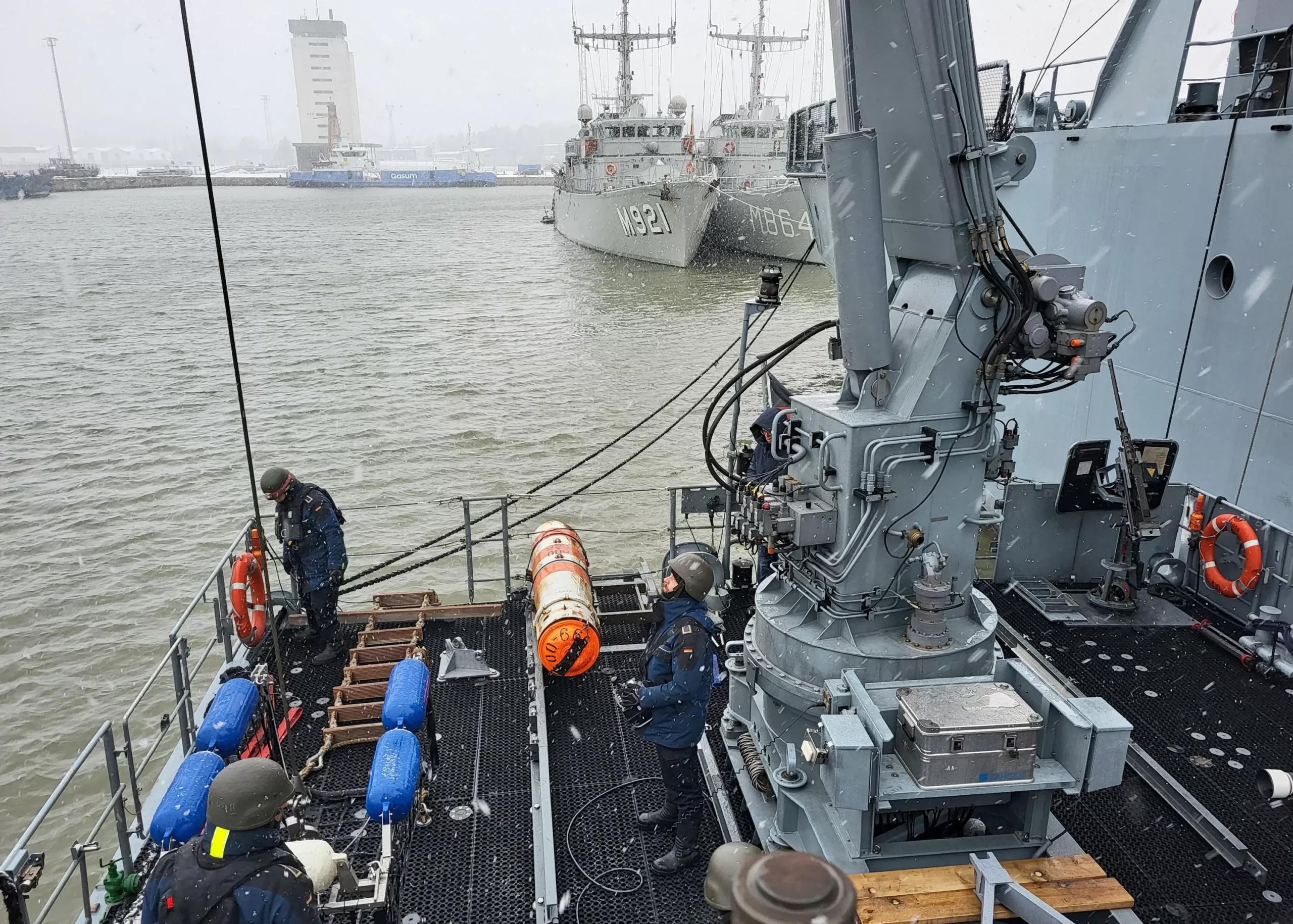NATO announced on Friday its plans to increase its presence in the Baltic Sea, in response to the suspected sabotage of an undersea power cable and four internet lines. This move comes as Estonia launched a naval operation to secure its maritime borders and protect its vital infrastructure.
The recent incident, which occurred on Wednesday, has raised concerns about the security of the Baltic region. The undersea power cable, which connects Estonia to Finland, was damaged in an apparent act of sabotage, causing a major power outage in the country. In addition, four internet lines were also cut, disrupting communication and causing inconvenience to businesses and individuals.
In light of these events, NATO has decided to take action to strengthen its presence in the Baltic Sea. This decision was made during a meeting of the North Atlantic Council, which is the principal political decision-making body within the organization. The move is seen as a show of solidarity and support for Estonia, as well as a clear message to those who seek to undermine the security and stability of the region.
NATO Secretary General Jens Stoltenberg stated, “We are deeply concerned by the suspected sabotage of the undersea power cable and internet lines in Estonia. This is a serious incident that threatens the security and well-being of the people in the region. NATO stands with Estonia and will take all necessary measures to ensure the safety and security of our allies.”
The increased presence in the Baltic Sea will include more ships, aircraft, and troops, as well as enhanced surveillance and intelligence capabilities. This will not only serve as a deterrent to potential aggressors, but also provide a rapid response in case of any further incidents. The alliance will also work closely with Estonia and other Baltic states to strengthen their defense capabilities and resilience against such threats.
Estonia, a small but strategically important country, has been a member of NATO since 2004. It shares a border with Russia, and has been a target of cyber attacks and other forms of aggression in the past. The recent incident has only highlighted the need for a strong and united response from the international community.
In addition to the increased presence in the Baltic Sea, NATO has also pledged to provide technical and cyber expertise to help Estonia investigate the suspected sabotage. This further demonstrates the alliance’s commitment to standing by its allies and ensuring their security.
Estonia has also taken swift action to protect its maritime borders. The country’s navy has launched a naval operation to secure its waters and prevent any further threats to its vital infrastructure. This operation, which involves patrol boats and other naval assets, will work in close coordination with NATO forces in the region.
The Estonian government has also condemned the suspected sabotage and called for a thorough investigation to identify and hold those responsible accountable. Prime Minister Juri Ratas stated, “We will not tolerate any threats to our security and sovereignty. We are determined to protect our country and our people, and we are grateful for the support of our NATO allies in this endeavor.”
The increased presence of NATO in the Baltic Sea is a clear demonstration of the alliance’s commitment to the security and stability of its member states. It sends a strong message to those who seek to undermine the region’s security that such actions will not be tolerated. The alliance will continue to work closely with Estonia and other Baltic states to ensure the safety and well-being of its citizens. Together, we will stand strong and united against any threats to our shared values and principles.






![Complete BritRail Pass Guide [Types, How to Use It, Pros + Cons]](https://inside-news.uk/wp-content/uploads/2025/06/00221EB4-BCA2-4DBB-6CD4-83DBC37D71FA-120x86.webp)















